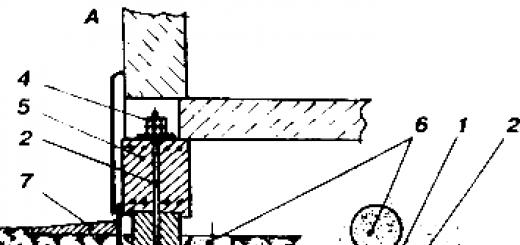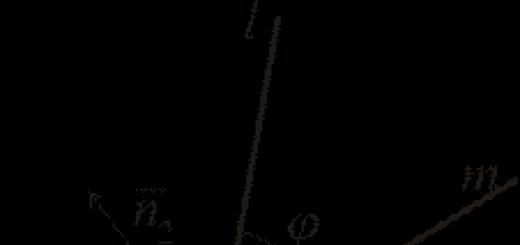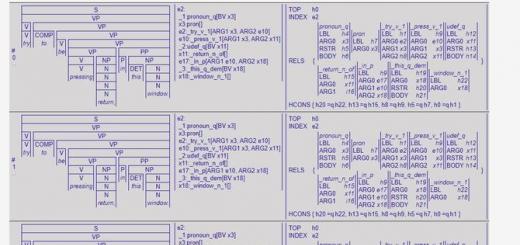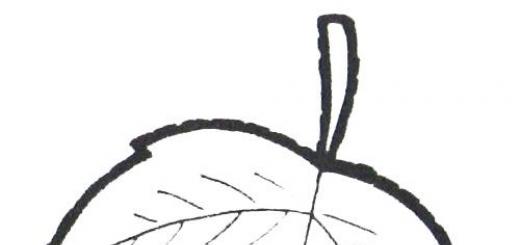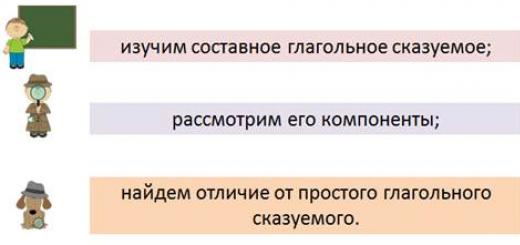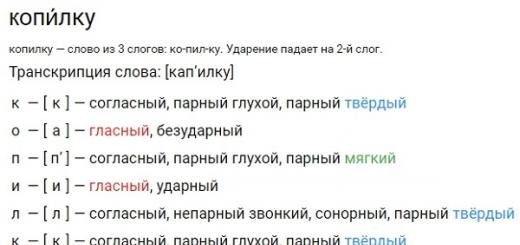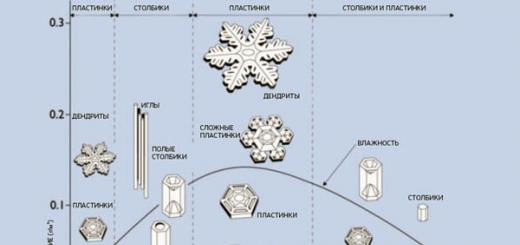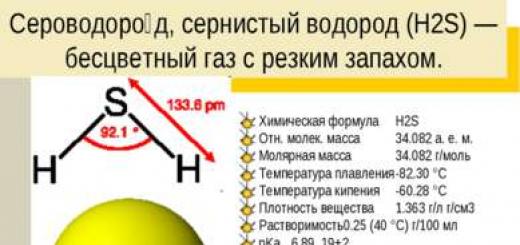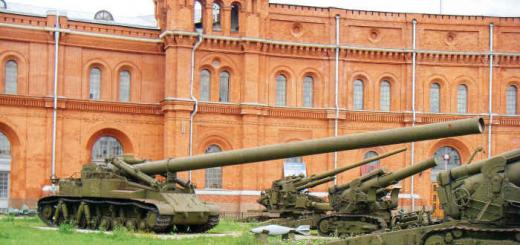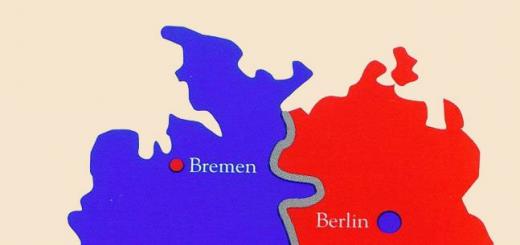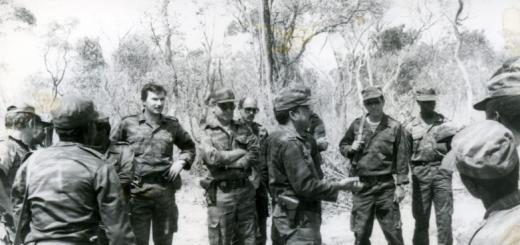Forms of organization of work: Independent research, work in class and outside class, work in groups, discussions, brainstorming, consultations, competitions, defense of projects. The basis of training is a project approach that stimulates students to more fully and firmly assimilate vital general labor knowledge and skills, cultivate hard work, commitment, responsibility and decency, develop conflict-free communication skills, a culture of behavior and reasonable treatment of nature.
Methods for developing Methods for developing life competence in life competence lessons in technology technology lessons Verbal: story; different forms of survey; working with a textbook; didactic material. Visual: practical demonstration of actions; technological maps; reference tables. Practical: work planning; execution, control and verification of their work; project activities.
The principles that guide me when teaching are the principle of clarity; The principle of systematic and consistent knowledge; The principle of accessibility and feasibility; The principle of conscious and active participation of students in the learning process; The principle of the strength of students' knowledge; The principle of connecting theory with practice, learning with life; The principle of scientific teaching.

In my teaching practice I use the following educational technologies: Research teaching methods; Information and communication technologies; Problem-based learning; Personally centered learning; Collaborative learning (team, group work); Project-based teaching methods; Health-saving technologies; Game-based learning technology

Belenkaya Lyudmila Vladimirovna Theoretical Description of theoretical information on the proposed topic. Practical Practical implementation of the task: collecting information; design development; drawing up the manufacturing sequence; choice of processing method; completing of the work; economic justification for the project. Creative project. Creative project. Stage 1 Stage 2


From work experience
A teacher prepares for a good lesson all his life...
And to give students a spark of knowledge,
The teacher needs to absorb a whole sea of light.
V.A. Sukhomlinsky.
Is there a nobler profession in the world than that of a teacher? Probably no one can say the opposite with complete confidence. From time immemorial, teachers have become people who deeply love others, are selfless, and self-confident. History bears many examples of this. If there were no teachers in the world, there would be no people of other professions.
I'am a teacher. And I am proud of this title. I love my job and my students. I like to answer their questions, sometimes serious and complex, sometimes ridiculous, or even completely incomprehensible. But since a person asks, it means his mind is working, and working purposefully.
In fact, the demands of modern life are very cruel, and only a person who is strong in all respects is able to withstand the new conditions.
I am a technology teacher for girls, so I believe that the level of girls’ preparation for life directly depends on us. We live in a very difficult period; many of our graduates, once outside the school walls, encounter difficulties and are often left without work. Therefore, even at school, we must conduct labor and economic training for students so that, once outside the school walls, be it an excellent student, a shock student or a C student, they can adapt to the conditions of a market economy.
Labor development of personality in any socio-economic conditions remains a fundamental task of education. The underestimation of technology and labor education in school leads to the fact that modern youth do not develop respect for and interests in work in the sphere of material production and technical creativity. Technological training is based on the inclusion of students in a variety of activities: educational, self-service, socially useful, including creative, production and entrepreneurial and search and research.
My methodological topic: “Education and training of a competitive personality capable of adapting to a market economy.”
I have been teaching technology classes since 1991. I have the following achievements:
– winner of the Priority National Project “Education” 2006;(Annex 1 )
Winner of the regional stage of the All-Russian competition “Teacher of the Year -2002”;(Appendix-2)
Winner of the III Republican competition “Use of new information technologies in the educational process and school management” in the category “Best methods of using new information technologies when studying subjects using technological processes”". (Appendix 3)
Total teaching experience is 32 years. Over the years, I have graduated from 5 graduating classes, currently the class teacher of the 10th grade. I am glad that my students have found the right path in life, they are always respectful of their elders and are not indifferent to emerging circumstances. Many, after graduating from higher educational institutions, occupy leadership positions. Three graduates graduated from a higher military school and are currently serving the Fatherland.
In my class I try to foster collectivism, friendship, and mutual understanding. I involve them in various events that unite the children’s team, and help students affirm their “I.” The lessons of technology are close to life. The performance and quality of students in the subject is always at a high level. What kind of mother is this who has poorly mastered the lessons of cooking, sewing, knitting, personal hygiene, and ecology? After all, there are no mothers who do not know how to cook, sew, knit, or do not observe the rules of personal hygiene. ecology.
Student achievement - 100%;
Quality of training -100%.
In my work I try to use various methods and forms of work. I pay a lot of attention to the project method. Every year, students from grades 5 to 11 complete project work. They choose the topic of the project, justify the choice of the project topic, look for ways to solve the problem, make economic calculations, and draw up a technological map for the manufacture of the product. For example, projects: “Slippers, my slippers”, the work of 10th grade student Gazizullina Aliya - 2010, “Turtle with a simple crochet”, the work of 11th grade student Makhmutova Aliya - 2011, “Magic Web”, the work of 8th grade student Sungatullina Gulnaz - 2012, “Bride’s Bouquet” with your own hands" work by 10th grade student Zaidullina Liana - 2012, "Universal beach bag - "UPS" by 10th grade student Alina Khabirova - 2011, "Magic Basket" by 11th grade student Alina Khabirova - 2012.
Khabirova Alina Ilshatovna is a participant in the Republican stage of the All-Russian Olympiad for schoolchildren in technology in 2012 and 2013. (applications 4.5 certificates).
I love attending seminars given by my colleagues. In March 2012, I myself conducted a master class as part of a regional seminar for technology teachers on the topic “Use of project activities in technology lessons.” ( applications 6.7)
The seminar program included the following questions:
- Speech on the topic: “Using project activities in technology lessons”
- Presentation of products of the school company "LOTOS"
- Master class on carving for technology teachers.
- Presentation of the best projects of the Republican Olympiad.
I conducted open lessons for technology teachers, parents and school colleagues on the topics: “Table setting” in grades 7-8 - 2010; “Types of arts and crafts” in 10th grade – 2011; “Crochet from A to Z” for grades 5-6 – 2011; “Ecological problems and environmental technologies” in the 11th grade in 2012, annually we defend creative projects in all classes.
In addition to lessons, I conduct extracurricular activities with the invitation of mothers and grandmothers. So, I held an extracurricular event: “Come on, girls” among girls in grades 5-8, 2011; “Together at the Tea Table”, an event for high school students dedicated to the history of tea - 2011. The event ended with a tea party.
A lot of work is being done to sew stage costumes for various school and regional competitions.
I pay a lot of attention to labor education.
The words of Anton Semenovich Makarenko became a kind of motto in my work:
“Labor has always been the basis of human life and culture”
Introducing schoolchildren to work, developing readiness for socially responsible actions, and independent decision-making is one of the urgent tasks of modern education. The work of schoolchildren in school sites and in labor and recreation camps involves teenagers in productive planned work and provides familiarity with the modern technological cycle.
Labor practice is organized with the aim of effectively using the capabilities of school areas, familiarizing children with new technologies in the field of green urban planning, with modern approaches and methods of environmental work, and contributes to the manifestation of independence and self-affirmation of schoolchildren.
Labor education and labor practice are carried out:
During the educational process;
In the school area;
In the school greenhouse;
Inside the school building during renovation work;
Through the school business company;
In the school nursery.
Labor development of personality in any socio-economic conditions remains a fundamental task of education. Another thing is that in modern society, the rather rhetorical attitude in the past towards collective work in the name of the common good has been replaced by a more vital one, focused on achieving personal success. But at the same time, the interests of society should not be infringed and moral norms should not be violated.
The success of the labor education of the younger generation largely depends on the combined efforts of educational institutions, families and the public. Today, the rural school has great opportunities for the labor education of children.
At the same time, in the new conditions, the task of preparing rural schoolchildren for competent management of individual (farm) farming on a modern agro-, zootechnical and economic basis comes to the fore.
All this is fully represented in the activities of our school.
At the same time, theoretical material is studied in inextricable connection with practice, since the school has a good material and technical base and land.
I am also the head of the school's educational and experimental site.
Our school twice in 2005 and 2008 participated in the republican competition of educational and experimental sites, in 2005 they took 2nd place, in 2008 they took 3rd place. The school was awarded a certificate of honor from the Ministry of Education and Science of the Republic of Tatarstan and a valuable prize - a television. I, as the head of the school site, was awarded a Certificate of Honor from the Ministry of Defense and Nationalities of the Republic of Tatarstan.(Appendices 8,9);
In 2011, a package of documents was submitted to apply for a Grant from the Ministry of Agriculture and Food of the Republic of Tatarstan in the amount of 100,000 rubles. The school and I were awarded a Certificate of Honor from the Ministry of Agriculture and Food of the Republic of Tatarstan. (appendices 12,13 – diplomas)
In 2010, we became laureates of the VIII International Competition named after A.S. Makarenko, which took place in Moscow in April 2010.( application14)
- In 2012 they became laureates X International Competition named after A.S. Makarenko, which took place in the city of Chebarkul, Chelyabinsk region from April 1 to April 5, 2012.(Appendix15)
During school and extracurricular hours, I pay great attention to environmental education. Together with the children, we participate in various operations: “Clean spring”, “The greenest school”, “The greenest street”, “Clean where they don’t litter”, etc. In 2010, our school joined the “More Oxygen” project. A school nursery was created, 1,500 pine trees and 400 duda trees were planted. For good organization of work, active participants and managers were awarded Diplomas from the International Public Organization "ECA". (Applications 16,17,18,19)
Since 2004 I have been the head of school business companies.
One of the innovations in our school is the creation of school business companies, the result of which is the cultivation of vegetable seedlings and flower beds, the production of a universal “UPS” beach bag, and knitted items.
The company’s guys are also involved in charitable activities, for example, last year they took part in the “Knitted Products for Kindergarten Pupils” campaign. The charity fund amounted to one thousand rubles.( appendix 20)
On December 22, the Lotus school company participated in the republican charity fair in the city of Kazan and the proceeds of 3,250 rubles were used for the treatment of little Vanechka. ( appendices 21, 22)
All business companies of the school annually participate in republican and all-Russian meetings of school business companies and are awarded diplomas for victories in various categories. ( Applications 23,24,25)
This year, a school business company with the beautiful name “Lotus” was launched, which provides services for decorating holiday tables with artistic carvings of vegetables and fruits, using the “Carving” technology.
The Lotos company is the winner of the XII Republican meeting of school business companies and was awarded a third degree Diploma of the Ministry of Defense and Science of the Republic of Tatarstan, as well as me as a manager. (applications 26,27,28)
Business school companies are designed to instill in schoolchildren management skills, the ability to be not dependents, but masters, masters of the earth.
There are no limits to the children's imagination and creativity. We work very hard, improve ourselves, study new products, do not rest on our laurels, and keep up with the times.
Our successes are spoken and written not only in local, but also in the republican media; our work experience is also shown on republican television.(Applications 29,30,31,32)
A member of the school company “UPS”, a graduate of the association Airat Sadykov participated in the IX Republican festival “Sails of Science”(Appendices 33,34)
For many years I have been leading hobby groups “Funny Squares” and “Step to Business” and my students participate in competitions at various levels. For example, Aliya Makhmutova participated in the “Never-ending Frost” competition and was awarded a Diploma of the Ministry of Defense and Science of the Republic of Tatarstan. ( applications 35,36)
In 2012, I took part in the VIII republican competition “50 best innovative ideas for the Republic of Tatarstan”. She spoke at the section and presented and defended the “Lotus” project(appendices 37,38)
My publications:
1. “Universal beach bag - UPS”, magazine “School and Production” No. 1, 2010.(Appendix 39).
2. “Flowers from vegetables” material for the magazine “School and Production”, material is under consideration.
In class and outside of class, I pay attention to national education, based on the traditional crafts of the Tatar people. This is national embroidery, the production of national jewelry, national dishes. One of the interesting extracurricular activities is the “Kaz Omasy” holiday. ( Appendix 40)
The successful delivery of lessons is facilitated by the technology room, which meets regulatory requirements. There are 5 manual, 2 electric sewing machines, overlocker, iron, ironing board, scissors, etc.
To successfully conduct the educational process, I constantly and timely take advanced training courses:
- “Normatino - legal and technological foundations of children's and adult educational production”, April 1-5, 2012, Chelyabinsk Institute for the Development of Vocational Education.( applications 41,42,43)
- “Anti-crisis management: practical issues of autonomous institutions and their management”, Moscow, State educational institution of additional education, Moscow regional training center “Nakhabino”, from March 10 to April 4, 2010.
- “Technological support for the examination of teaching activities using computer technologies: new methods for assessing the level of qualifications of teaching staff,” Institute for Educational Development of the Republic of Tatarstan, 10/4/2011.
- “Methodology for assessing the qualifications of teaching staff,” Institute for Educational Development of the Republic of Tatarstan, Kazan, 2011.
- I am constantly working on self-education and generalization of experience:
Presentation at the Republican August meeting of teaching staff of the Republic of Tatarstan in Mamadysh in August 2012 (Appendices 44,45)
Presentation of Lotos company products at the regional August meeting of teaching staff.
Speech at the regional August meeting of teaching staff on the topic:
“School business companies are the basis for developing entrepreneurship and small business skills,” 2012.
Kindness, mercy, honesty, decency, love for the Motherland - these are the qualities that I try to cultivate in my children. These qualities have constituted the enduring value of human culture in all centuries. Therefore, the main goal of my work is to raise a healthy, independent, responsible, critically thinking, free and happy citizen of his country and the entire planet. I am obliged to instill a taste for intellectual work: to teach to look and see, to observe, to think, to conduct dialogue... it is important as a person’s mission.
I only dream that my children leave school into the big world with a heart open to goodness and beauty, a soul capable of love and compassion. To simply become Human!
Teachers! Like a light on the way!
What a fiery heart you need,
To bring light to people,
So that his trace cannot be erased forever!
“The origins of children's creativity and gifts are at their fingertips.
From the fingers, figuratively speaking, streams flow that feed the source of creative thought.
In other words: the more skill in a child’s palm, the smarter the child.”
Sukhomlinsky V.A.
Relevance and prospects of experience.
I strive to teach schoolchildren to think, analyze, put forward ideas, creatively approach solving any problems, and appreciate beauty. Creative people adapt faster in society and at work, master their profession better and do their job. The subject "Technology" is special. It not only develops a polytechnic outlook in children, introduces them to new equipment, modern technologies for processing materials, helps them navigate the world of professions, but also gives them the opportunity to get involved in creative work while still at school. The ability to do a lot and well with your own hands is the key to self-confidence. Modern society, technological progress, difficult economic conditions in the country require the development of such human abilities as: mobility, professionalism, competence, the ability to navigate in various fields of science, culture and production; constantly improving their competence, able and willing to learn.
Labor activity is the purposeful work of the entire teaching staff with constant interaction with parents; this is painstaking work consisting of a number of interrelated activities (school traditions, excursions, competitions, holidays...) as a result of which students develop self-service skills; culture of behavior; aesthetic taste is cultivated. And the main thing is to be independent, know your capabilities, joyfully reveal your abilities and in the future become a sought-after person in society.
An important aspect of a teacher’s pedagogical activity is the opportunity, in the process of labor training, to form a stable motivation for self-knowledge and self-improvement, through the expansion of functional capabilities, to encourage him to successful creative self-realization. My purposeful activity as a teacher is aimed at identifying and developing children’s labor interests and inclinations in accordance with their personal abilities, needs and suitability for a particular profession.
Conceptuality. Availability of a theoretical basis of experience.
In my work, I take into account the individual characteristics of students, use communicative teaching methods, conduct various types of lessons, both standard and non-standard: lesson - competition, lesson - competition, lesson - presentation, integrated lessons. When teaching, I use various types of tasks of different levels of complexity, providing a differentiated approach to learning, which allows us to more fully reveal the creative and intellectual abilities of students and intensify their cognitive activity. Based on the student’s capabilities, learning conditions and material support, I select the appropriate types of work, take into account the content of the program (some topics may be omitted or, based on them, I develop new ones for other types of work), and also determine the time required to develop the content of the program topic.
Classes are structured taking into account pedagogical work; they must be linked to all stages of the lesson, to the content of educational material, to didactic goals and teaching methods. I direct the labor education of students to the formation of motivation for a positive attitude towards work as a form of human existence and self-realization, and towards the choice of profession.
New socio-economic living conditions dictate their requirements for children. Therefore, I teach students to plan and organize work, evaluate results, find and use the necessary information, possess knowledge and skills, use different means and ways of converting materials and information into a final consumer product, and be creative in the quality of their work.
I think the most effective thing in our school is individual and differentiated instruction. In the developed program for the development of creative abilities, the child is given the opportunity to begin his education from any section of the program and choose the direction that he is ready to accept right now, based on his real capabilities. To do this, I provide multi-level practical tasks in sections in accordance with the level of development of the student and his age. Moreover, a student will be able to show creativity in work only if the work is feasible. But the child is not only given a difficult task and given freedom to choose means, but also the obligation to bear responsibility for his choice in the quality of the work. All this is an additional incentive to master decorative and applied arts in the future for more successful socialization in society. Such an organization of additional education develops determination, willpower, and the importance of work for their future. Works completed by children in lessons are included in exhibitions, which gives strength and increases students’ self-esteem and gives them confidence in the future.
Currently, one of the principles of education is humanization, which requires specific innovative technologies, ensuring its implementation. I use technology of personality-oriented learning, which helps create conditions for self-knowledge, self-determination and self-realization of visually impaired students. The project method is one of the leading directions in a person-centered approach to student learning. “What a child can do today in cooperation and under guidance,” argued the outstanding psychologist L. S. Vygodsky, “tomorrow he becomes able to do independently... By examining what a child is able to do in cooperation, we determine the development of tomorrow.” This is largely facilitated by the implementation of creative projects.
Leading pedagogical idea.
My work in technology lessons is that one of the areas of work is the project method, which is always focused on students’ independent activities - individual, pair, group, which students perform for a certain period of time.
The use of the project method is a search for ways to solve problems that cannot be solved within the framework of traditionally used teaching methods due to the different starting levels of knowledge and skills of schoolchildren.
In addition, project activities allow the teacher to take an individual approach to each student and distribute responsibilities in groups according to the students’ abilities and interests.
During the design process, the teacher acts as a consultant: he gives recommendations on preparation, collection of information, promptly directs them in the right direction if students have wandered off topic, and discusses the stages of project implementation with students. A creative project for students, a way to organize a student’s cognitive and labor activity. It provides for the implementation of certain needs of people, the development, design and creation of products, services, quality assessment, and determination of real demand in the goods market. The project is aimed at self-realization of the individual in activities. When carrying out a project, I take into account the individual abilities of students, faith in the creative powers of a person, in his capabilities, “projecting the best in a person.”
When choosing a project topic, I take into account the child’s level of development: strong - complex, weak - according to their real capabilities. I accept the student as he is, I use all the goodness inherent in him, his desires and abilities, which will become the basis for creating the intended product. When organizing a project, I take into account the age and individual characteristics of the child. When working on a project, the child works independently, but for the benefit of society for the team, as he is aimed at social interests. The product is predetermined and can be used in the life of a classroom, school, village, home, etc. The child works to create a public good, finding its application in the market for goods and services. For example: When completing a project on the topic “Making a decorative panel for a room,” the student is faced with the problem of why he will make the panel, where it will be useful. How to make? Finds a solution. Working according to this scheme involves organizing the creative space around the manufacture of the product. The output of a child’s creative project will be the social significance of his work, the approval of the team, the acquired knowledge and skills in completing the product, the ability to defend his work, his project, and the development of thinking through creative search. Training in project methods develops the individual as socially significant by including him in various types of activities in real social and production conditions, instills in students vital knowledge and skills in the field of housekeeping and family economics, and helps to adapt in a competitive environment. The educational field “Technology”, based on the project-based teaching method, involves not only “awakening” the dormant creative inclinations of the individual, but also creating conditions for their development. Years will pass, and today's schoolchildren will create new materials and advanced technologies. It is up to them to restore the former glory and pride of Russia. Project activity is the search, development, transfer of ideas: search method, experimental method, research method, implementation of theory into practical activity, summing up. At the first stage, all upcoming actions are designed by students in theoretical form with the obligatory identification of possible problems and contradictions and the development of options for overcoming them. The use of project-based teaching methods in work, which contribute to the disclosure of creative potential, ensures the development and self-development of the student’s personality. Of the greatest value are research works carried out with students, both in class and in extracurricular activities, which contribute to the formation of analytical skills and the ability to work with primary sources. All this makes it possible to improve not only the quality of students’ knowledge and their interest in the subject, but also to develop the individual abilities of schoolchildren.
The educational process using the project method differs significantly from traditional teaching . Target- development of an active creative personality, capable of independently acquiring new knowledge and skills. Motives- the joy of creativity, self-improvement, self-confidence, acquiring new knowledge and skills. Methods- the predominance of active methods: - problematic, - heuristic conversation, - debate, - joint search, - methods of activating creative thinking. Forms of organizing classes- group and individual: - independent research work, - discussion, - brainstorming, - consultation. Functions of the teacher- organization, coordination and activation of the creative process, students solving problems, cognitive and practical tasks. Student functions- mastering ways to acquire knowledge, mastering skills as needed, improving oneself and the world around us. Teacher status- assistant, advisor, consultant, senior friend. Result- a developed creative personality, capable of independently acquiring knowledge and skills and applying them in a new situation.
Formation of a positive “I-concept”. (The student learns on his own, and the teacher carries out comprehensive management of his learning, i.e. motivates, organizes, coordinates, advises).
The labor training of students, which existed in Russian schools for many years, had both positive and negative sides.
1.Students’ interest in vocational training was low, as it was not related to the needs and inclinations of the students.
2. The motivation of schoolchildren for subject-transforming activities in labor training lessons was at a low level, because the students did not see the social and personal significance of their work.
Traditional forms and methods of organizing labor training did not involve schoolchildren in research activities, which were most attractive to them. Planning the learning process decides which skills are useful, and teachers teach students who have no choice about what and how to learn. This approach can be considered a one-way transfer of knowledge:
teacher teaches - student studies;
teacher speaks - student listens;
teacher active - student passive;
teacher subject of training - student learning object;
teacher thinks - student reproduces knowledge obtained in finished form
When using the project method in technological education, schoolchildren are involved in creative activities. The teacher-student relationship changes radically:
student determines the purpose of the activity - teacher helps him with this;
student opens up new knowledge - teacher recommends sources of knowledge;
student active - teacher creates conditions for activity;
student subject of learning - partner teacher;
student chooses - the teacher helps predict the results of the choice
An important problem for the teacher is to show students the creative content of the professions that interest them, just as schoolchildren should be aware of the need for social creativity in all areas of work. The combination of forms, methods and techniques of teaching I use gives a positive result.
Optimality and effectiveness of funds.
While working on the project, students develop the following abilities:
Communicative - the ability to communicate;
Problem-searching - the ability to solve life's issues;
Reflexive - the ability to analyze perfect activity.
Having certain abilities, visually impaired students actively express themselves in group project activities. Having distributed all the stages of the project, students specifically begin to complete their task.
Starting from the 5th grade, students complete projects of their choice: making a garment, decorating the interior of the kitchen, dining room; table setting for the holiday; making a painting; patchwork plastic, production of decorative knitted items; cross stitch and satin stitch embroidery; making flowers from paper and much more.
Each stage of work is carefully and strictly controlled. Students carry out independent activities, including various academic disciplines in their work.
The effectiveness of the experience.
An important problem for the teacher is to show students the creative content of the professions that interest them, just as schoolchildren should be aware of the need for social creativity in all areas of work. The combination of forms, methods and techniques of teaching I use gives a positive result, as can be judged by the positive dynamics of academic performance in the classes in which I teach technology and by the results of school and district events. I happily pass on my skills and abilities to children. I am very happy when students’ eyes sparkle with creative passion. The best works of students are exhibited at competitions, festivals, and exhibitions. In recent years, students have repeatedly become prize-winners and winners of school and regional subject Olympiads. For two years in a row, students have been participants and prize-winners of the regional competition “Skillful Hands”, winners and prize-winners of the regional scientific and practical conference. I take part in the public life of the school, conduct open lessons, speak at regional seminars, the school’s pedagogical council and at the methodological association of teachers “Technology and Physical Education”.
Social activity of the teacher
Member of the All-Russian political party UNITED RUSSIA since 2009. Classroom teacher
RELEVANCE AND PROSPECTIVENESS OF EXPERIENCE.
Modern human society is characterized by the widespread introduction of progressive technologies into all sectors of production. The technological stage of the development of society requires a change in the content of education, which makes it possible to better prepare schoolchildren for life. In this regard, technology change is an objective and natural process. The technology subject program is built on a modular principle, which ensures the integration of various types of activities necessary for students to achieve their learning goals. Each of the modules, as an independent unit of content, represents a technological process of processing material or a group of works that are united by semantic and logical unity and aimed at achieving complex didactic goals.
The module covers the main aspects of modern production (technique, technology, economics and organization) in conjunction with natural (environmental) and social factors of labor activity.
The set of modules is not strictly mandatory, individual modules can be excluded, new modules introduced, the sequence of their completion changed so that the individual needs and capabilities of students, local production and labor traditions, teacher preparedness to carry out certain types of work, material and technical school provision.
Thus, the promise lies in the fact that block modular technologies allow modules to be adapted in connection with the needs of the time, the requests of parents and children, local production and labor traditions and characteristics.
THEORETICAL BASIS OF EXPERIENCE.
To accomplish this task, I use block-modular technology and technology of project activities, which is described in detail in the works:
- Simonenko V. D., Tikhonova A. S. (Methods of teaching students Technology),
- Tkhorzhevsky D. A., Getto V. G. (Fundamentals of problem-based learning in labor lessons),
- Tikhonov A. S., Sidorov O. V. (Creative potential of educational design),
- Pavlova M. B., Pitti D. (Educational field "Technology". Theoretical approaches and methodological recommendations - York: Technological and entrepreneurial education in Russia), Sopelnyak A. P. (Psychology of creativity // Inventor and innovator).
These works provide specific examples of the following technologies:
- Problem-based learning technology.
- Technology of project activities.
- Differentiated approach to learning.
- Student-centered approach to learning.
NOVELTY OF EXPERIENCE.
The introduction of block-modular technology is due to the objectively existing need in society for the labor development of the younger generation. It is of particular importance for the full development of the personality of students; it is designed to instill in them hard work and introduce them to the world of creative work. At the same time, the project method as the main connecting element of the program allows the teacher to qualitatively verify the content and correct distribution of hours for studying certain sections, optimally select and assemble the necessary educational material, taking into account the age characteristics of students and local special needs of production.
LEADING PEDAGOGICAL IDEA.
When implementing student-centered learning, I coordinate the educational process, observe, indirectly guide students’ activities, help in choosing solutions, activate students’ independent activities, and diagnose the development of students’ personalities.
Students unite in interest groups, plan their activities, apply tasks from other educational areas, engage in research work, carry out self-control and introspection, search for and choose research paths.
Among the forms of organizing educational activities, I use independent research work in class and outside class, discussions, brainstorming, interviews, consultations, competitions, and project defenses.
The basis of training is a project approach that stimulates students to more fully and firmly assimilate vital general labor knowledge and skills, cultivate hard work, commitment, responsibility and decency, develop conflict-free communication skills, a culture of behavior and reasonable treatment of nature.
TECHNOLOGY OF EXPERIENCE.
The lessons are structured according to the following structure of educational activities:
Stage 1 - educational and cognitive motive, the motive of one’s own growth, one’s own improvement.
Stage 2 - educational task aimed at mastering the necessary knowledge and skills. These tasks include conducting research, analysis, independent study of certain phenomena, constructing methods of study and recording the results of the study.
Stage 3 - educational activities with the help of which students solve educational tasks.
These include:
- isolating the problem from the goal of the educational task.
- identifying a way to solve the problem.
- modeling ways to solve educational problems.
- specification and enrichment of methods of action.
- monitoring the progress and results of educational activities.
The principles that guide me when teaching.
- The principle of visibility;
- The principle of systematic and consistent knowledge;
- The principle of accessibility and feasibility;
- The principle of conscious and active participation of students in the learning process;
- The principle of the strength of students' knowledge;
- The principle of connecting theory with practice, learning with life;
- The principle of scientific teaching.
In the content of training, I include students in the processes of designing, constructing, modeling and researching a project in action. I provide an integrative basis for learning and synthesis of knowledge by students in the process of completing projects. Among the forms of organizing educational activities, I use independent research work in class and outside class, discussions, brainstorming, interviews, consultations, competitions, and defense of projects.
At the same time, I use three main forms of organizing students:
- frontal;
- group;
- individual.
To develop mental abilities and interest in knowledge, I use the following teaching methods in practice:
Explanatory and visual (reproductive) method. This method covers: demonstration, lecture, literature study, television broadcasts.
Problematic method. Thanks to this method, students acquire logical and critical thinking skills.
Partial search method. With this method, students have the opportunity to become familiar with certain aspects of research work while working independently in the design process.
A research method through which students gradually learn the principles and stages of scientific research, study literature, test hypotheses and evaluate the results obtained.
It is advisable to combine the implementation of projects with preliminary training of students with the necessary theoretical information, which is included in the project method.
The project method is a teaching system, a flexible model for organizing the educational process. Projectivity is a defining feature of modern thinking; it is an activity to implement changes in the environment. Project-based education is education that involves, on the one hand, mastering knowledge in the form of projects, and on the other, learning to use old knowledge and produce new knowledge in the form of new projects. The project method helps students develop adequate self-esteem, raise their image in the environment, and strengthen “I myself,” “I will do,” “I can.” Preserving and enhancing the child’s innate “independence” is the most important task in the education of the younger generation, which I try to solve in my lessons. To do this, I use different types of visualization: natural, pictorial, volumetric and sound, symbolic and graphic.
Under verbal clarity, I use bright, figurative, lively speech that evokes specific ideas in students. I have been using this technology for nine years.
In the methodological box:
Block modules.
- Module one. Personal hygiene and home hygiene.
- Module two. Cooking elements.
- Module three. Flowers in the house.
- Module four. Family holidays.
- Module five. Weaving and weaving.
- Module six. Fabric processing.
- Module seven. Elements of mechanical engineering.
- Module eight. Elements of home economics.
- Module nine. Fundamentals of Entrepreneurship.
Thematic and lesson plans.
Lesson topics:
Elements of materials science.
Elements of mechanical engineering. Working on a sewing machine.
Design and production of a shoulder product based on a drawing of a nightgown.
Designing a nightgown and modeling a shoulder product based on it.
Didactic material:
Instruction card. Construction of a drawing of a one-piece apron.
Instruction card. Open the apron.
Instruction card. Making a chest patch pocket.
Instruction card. Attaching a belt to a skirt.
Instruction card. Design and modeling of skirts, aprons, shoulder products with one-piece sleeves and set-in sleeves.
Instruction card. Designing collars.
Cards for testing knowledge.
Patterns for an apron, skirt, shoulder piece, collars.
For convenience and clarity, folders have been prepared for middle and senior levels from 5th to 11th grade (career guidance work, project activities, hand embroidery, appliqué on a sewing machine).
Great assistance in work is provided by the office, where all the necessary visuals are available, didactic material has been accumulated and systematized, including:
- tables;
- reference diagrams;
- bank of educational projects.
PERFORMANCE.
The work I am doing in this direction is yielding positive results:
- all students master the state educational standard;
- 100% academic success;
- the percentage of quality for the previous year in all classes is 100%.
In April 2007, she participated in the city review-competition of educational workshops of municipal educational institutions, and was awarded a diploma for 3rd place. She took an active part in the city exhibition of technology teachers dedicated to the beginning of the 2007-2008 school year. In March, I participated in the city exhibition of dolls held at the art school. She was awarded a diploma for the preparation of the project “School newspaper: a community of participants in the educational process”, which took 3rd place in the city action “I am a citizen of Russia”. She developed and presented costumes for participants in the city show - the "Safe Wheel" competition and took 3rd place in March 2007.
In April 2007, she prepared a speech entitled “Block-based modular teaching” for a school seminar.
For many years of conscientious work and in connection with the 10th anniversary of the Municipal Educational Institution "Secondary School No. 7" of the Education Department, she was awarded a certificate of honor from the head of the city of Gubkinsky.
In September 2006-2007, she was appointed head of the city MO of technology teachers.
In 2008, 4-B grade student Nastya Morozova took 3rd place in the city exhibition and competition of collective creative works “Family of Russia”. In May 2008, they received diplomas for participation in the second corporate festival "Torch" in Noyabrsk, Nastya Morozova, Alexandra Gavrilyuk, O. A. Gavrilyuk. In the city competition of youth projects and creative works "Rainbow of Professions" in the category Arts and Crafts Alexandra Gavrilyuk awarded a diploma for 1st place.
She received a letter of gratitude for cooperation in the field of vocational guidance of minor citizens and for active participation in the competition of youth projects and creative works.
In November 2008, 9-B grade student Ksenia Gilemkhanova became a prize-winner in the city Olympiad in technology.
She was awarded a diploma for participation in the district competition of decorative, applied and artistic arts "The Universe of Children's Creativity" dedicated to the 90th anniversary of the state system of additional (out-of-school) education for children. Salekhard 2008.
For presenting her teaching experience at the All-Russian festival "Open Lesson" she was awarded a diploma in the 2007-2008 academic year.
I consider it a big part of my work that the choice of profession for students at our school is in the direction of technology. Two graduates, Leshik Olga and Bondarenko Irina, graduated from college with honors and received the profession of pastry chef.
I pay great attention to health-preserving areas.
ADDRESSING.
Experience with this technology can be used by labor education teachers in secondary schools, both in the general education classroom and in the specialized one; vocational school teachers.
LABOR INTENSITY.
Starting to learn something new is always difficult and therefore time-consuming, both for the teacher and for the students. There is also a lack of literature, both educational and methodological, which takes a lot of time to compile information. Everything comes with time and experience. If, starting from the 5th grade, less comprehensive material is collected bit by bit, then by the 11th grade students successfully cope with more complex blocks-modules.
They are well versed in the selection of literature, distributing stages of work among group members.
Municipal budgetary educational institution
secondary school No. 15
Art. Rodnikovskaya, Kurganinsky district, Krasnodar region
From the experience of technology teacher V.V. Goncharenko.
“Description of positive experience in labor training and
education in the classroom and outside of school hours"

2015
This work is a generalization of my experience gained over the years of work in
school.
My search is to build an educational process that would help ensure
mastering a lesson or educational topic. How to plan a lesson so that
provide the maximum amount of knowledge to students in a minimum amount of time.
How, while remaining on the sidelines, reveal the capabilities of your students, do everything for
so that they feel like individuals and are imbued with self-respect. A
For this, the teacher must prepare the lesson so that the students after it
strived independently, voluntarily, to expand what they learned in the lesson
knowledge.
And, of course, not under pain of receiving an unsatisfactory grade, but for
in order to find out more. After all, the attractiveness of the educational process is
the most important condition for learning effectiveness and a cognitive factor
student activity towards education, positive attitude towards school.
To do this, I try to clearly explain the task and set a goal for the students.
so that the students know WHY, WHY and for WHAT PURPOSE they were given
exercise. Teach children to internally recognize reasonableness and necessity
Carrying out this activity is the main task of my work.
It is very difficult for a child to move from a state of doing nothing / or what
more difficult, from activity on one’s own initiative / to active work on assignment
teachers.
Therefore, I give students a full disclosure of this or that topic.
gradually. As if walking up the steps of a staircase. Part of the accompanying
I give topics to cover the main theme in the junior grades, then in the senior grades.
In elementary school I like to conduct lessons and extracurricular activities in
non-traditional form, which give great positive results.
In high school I conduct practical work that develops skills
sewing, knitting, cooking, etc.
The teacher is able to make each of his lessons attractive, but this
requires a lot of additional preparation. We need to select material, tasks,
exercises, make cards - tasks. And this is not a matter of one year, but in the end
In the end, the lesson will turn into a welcome time for communication between teacher and students, there will be
bring the joy of knowledge to the latter. The use of ICT allows for
lessons on a high aesthetic and emotional level (music, animation).
Providing visibility, attracting a large amount of didactic

material increase the amount of work performed in the lesson by 1.52 times, and also
provide a high degree of differentiation of training.
From the first minutes when children come to my lesson, I convince them that work is
this is the basis of everything. The basis for overcoming difficulties in the world around you and in yourself
yourself, development, human happiness. And the French proverb: “No one
is born with smart hands, hands become smarter through work” has become our living motto.
Therefore, every student of mine knows that there is no word I don’t want, but there is a word I need. But
Along with physical and mental labor there must also be moral labor,
uplifting. Without it, there is no labor, only mechanical work remains.
The joy of work is the most important way to form an attitude towards work. Without
Without a joyful attitude, good work is generally impossible. And an example of this
are the results of the work: participation in creative competitions and exhibitions.
The next pedagogical task is to develop an aesthetic attitude towards
surrounding life: to nature, to people, to society.
Aesthetic development helps the formation of moral criteria,
tastes, concepts, working abilities and mental development. Connection
aesthetic criteria with all the tasks of children's development is multifaceted.
For example, in cooking lessons on the topic “Preparing hot drinks” in
in particular, using the moment of even preparing tea, students
show special skill and skill. Easy tea preparation
turns into some kind of fabulous ritual. Thus, the girls showed their
the desire for creative mastery (material for part of this lesson is attached in
presentations). And I had the opportunity to take note of capable students and
identify the emerging leaders, those who are more developed, to whom the teaching is given
easy, but for some it is more difficult.
Using TRIZ problems (theory, solutions to inventive problems), I identify
non-standard thinking among students who were not among the leaders, but were
rather inconspicuous in a group of their comrades.
For example, explaining to students the history of sewing machines
(section of mechanical engineering), I am reporting that in 1837 Bartholomew Timothy
a workshop was first built, where 80 wooden
sewing machines. But this workshop did not last long, because... was
destroyed (but I don’t talk about it) but I ask the question: “Why is the workshop
didn't last long? » in some classes children immediately say the answer, in others
leading questions are needed.
Throughout the entire educational process, I pay great attention to the development
children in folk decorative art - one of the ways of education
love and respect for the Motherland, for our people, the land and area in which we

we live, introducing the world of beauty, the study of national traditions and
customs This can be seen in work such as collecting and
demonstrations of works completed by grandmothers, parents of students and
creative works submitted by the students themselves.
The Kuban Upper Room was created at the school with the help of students. Houseware
we use upper rooms during ritual holidays, such as Maslenitsa;
We organize exhibitions and hold meetings with handicraft masters.
Changed social and economic conditions dictate the need
making changes in preparing students for life and work. And one of the new ones
requirements – development of qualities of a business person. This means that big
attention is paid to the study of home economics, which includes the study
family budget, planning, in a word, what a young person needs
a person who has entered into independent life.
I would like to emphasize that, by achieving different ways of strengthening
attractiveness of the lesson, I would like to achieve the main goal of modern
school education – education and development of capable, life-loving,
knowledgeable and skillful talented individual, ready for creative activity. AND
at the same time, teach this person to treat people with respect, to take their
affairs, interests; develop the ability to communicate with adults and peers
be sociable, polite, sensitive and modest.
And it is possible. Perhaps when you believe in the spiritual powers of a child in his
the future of victory and good fortune.
